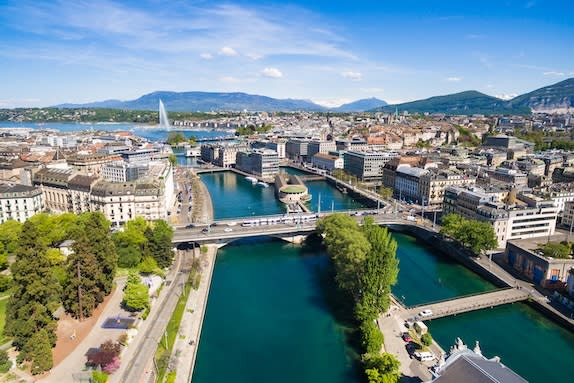Next week, on the 5th August, governments will gather in Geneva for the next round of negotiations for a Global Plastics Treaty.
This is our greatest opportunity to scale solutions and shift towards a circular economycircular economyA systems solution framework that tackles global challenges like climate change, biodiversity loss, waste, and pollution. It is based on three principles, driven by design: eliminate waste and pollution, circulate products and materials (at their highest value), and regenerate nature. for plastics.
At the last round of negotiations in Busan, countries showed unprecedented alignment on key elements of an ambitious treaty. Now, momentum is building.
Rob Opsomer, Executive Lead for Plastics and Finance at the Ellen MacArthur Foundation, said:
“Although negotiations for a Global Plastics Treaty ran out of time last November, I remain hopeful for an outcome in Geneva.
"This moment offers a real opportunity to redesign the system for how we make and use plastics and build a circular economy. Clear global rules can unlock innovation, scale solutions and deliver real economic and social benefits to people and businesses everywhere.
"The majority of governments and citizens support an ambitious, effective and legally binding UN treaty tackling the full lifecycle of plastics. Such a treaty would need to include key elements such as restrictions and phase outs of problematic products and chemicals of concern, along with product design measures and robust mechanisms for implementation. The Business Coalition for A Global Plastics Treaty, representing more than 290 businesses, financial institutions and NGOs, are aligned behind the same call.
“Nearly 100 countries have backed ‘The Nice Wake Up Call for an Ambitious Treaty on Plastic Pollution’ statement – an encouraging signal of global ambition to end plastic pollution which reinstates the urgent need to shift to a circular economy.
“To shift away from a wasteful linear economy, the focus on product design is more critical than ever. The inclusion of this in the treaty is key to transforming how we produce, use and manage plastics across its entire lifecycle. It is rightly recognised by countries as an essential lever to ending plastic pollution and achieving sustainable consumption and production levels.
“The momentum is real – and the mandate is clear. Now it’s up to governments to deliver. We call on governments to unite in ambition and agree to a strong treaty in Geneva to turn the tide on plastic pollution.”




